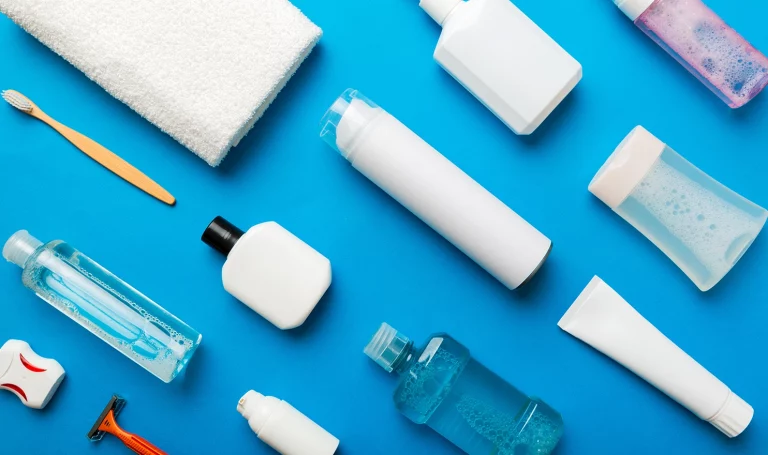When looking for liability insurance, you fall into one of two categories:
- A contract or agreement is requiring me to carry insurance and I need to find specific coverages.
- I want to insure my business and I’m looking for certain coverage, or trying to learn more about what I might need.
Based on the fact you’re reading this article now, you’ve likely turned to the internet for answers. The only problem is, there’s a lot of outdated and misleading information about liability insurance on the web and even in contracts people still use to this day.
That’s where we come in. Insurance Canopy is here to clear the air on one of the most common misconceptions in the liability world—product and public liability insurance. Let’s first break down the basics.

Product Liability Insurance
Product liability insurance meaning: Product liability insurance is designed to help your business pay for claims of third-party bodily injuries or property damage caused by your products.
If a product you manufactured, sold, distributed, or imported leads to an injury or damages, your business can be held responsible.
Also known as:
- Product liability coverage
- Product insurance
- Products liability insurance
Is “Product Liability Insurance” the correct terminology? Yes—this term is industry standard and used frequently by insurance companies around the world.
Helps you pay for third-party:
- Medical bills and hospitalizations
- Legal fees
- Repair or replacement costs
- Lost wages
- Funeral expenses
- Court awarded costs
Common claims include:
- Manufacturing defects
- Design defects
- Damages from shipping
- Strict liability
- Mislabeling
- Failure to provide instructions, ingredients, or warnings
- Choking on small parts
- Leaks from poor packaging
- Discoloration and staining
- Cuts, rashes, and burns
- Electrical fires
- Allergic reactions
- Illness, impairment, and death
Excluded coverage:
- Injuries or damages to you or employees
- Customer injuries or damages occurring on your property
- Professional liability claims
- Product recalls or refunds
- Commercial property damage
- Workers compensation

Public Liability Insurance
Public liability insurance meaning: Public liability insurance, better known as general liability insurance, is designed to help your business pay for claims of third-party bodily injuries or property damage caused by your business operations.
If the day-to-day activities of your business or employees lead to an accident, your business can be held responsible.
Also known as:
- General liability insurance
- Public liability
- Public liability coverage
Is “Public Liability Insurance” the correct terminology? No—this term is outdated and only rarely used in some instances throughout Europe, the UK, and some parts of Canada. The correct term is “General Liability Insurance.”
Helps you pay for third-party:
- Hospital and doctor visits
- Emergency medical aid
- Court and legal expenses
- Repair costs
- Lost wages
- Settlement expense
Common claims include:
- Slip and falls
- Accidents caused by employees
- Libel and slander
- Copyright infringement
- Shipping damages
- Damage to a third-party’s personal or rented property
- Fire damage
Excluded coverage:
- Damages or injuries to you, employees, or business property
- Workers compensation
- Commercial property damage
- Commercial auto claims
- Pollution or environmental harm

Public Liability Insurance VS. General Liability Insurance
Public liability insurance is no different than general liability insurance. They are the same type of coverage, just two different names.
Public liability, or general liability, are the risks you could be held liable for while doing business with the public. Even if you’re a business to business operation, you still run the risk of harming someone else at that business.
If someone comes to your place of business to buy products, have a service performed, do an inspection, or engage in other business activities, accidents could occur. Someone could slip on a wet surface, trip over a chord, or you may spill something onto their expensive coat by mistake.
You also run the risk of libel or slander accusations. If you run an advertisement slamming your competition and they sue, public liability insurance may help you recuperate legal fees and pay for any settlement costs.
The list of possible exposures you have is endless—that’s why it’s important to be protected from the millions of things that could go wrong each day.
The only difference you’ll find between public and general liability insurance is the name being used. Public liability insurance is a term that hasn’t been used by insurance companies for decades and is considered outdated. The correct term to use is general liability insurance.

If “Public Liability Insurance” Is Outdated, Why Is It Still Being Used?
General liability insurance is what insurance companies today use. Previously, the phrase public liability was used by insurance carriers like Lloyds of London who were established in the 1650’s in England. At that time, a business’s liability to the public was very limited compared to what your business may be liable for today.
With the advancement of technology and social media, your exposure to the public is much wider and you need a plan to help you cover that. This is how general liability insurance as we know it today came about.
Most people who write the agreements or contracts companies use today are not insurance professionals. They are not aware of what terms are common and what is outdated. That has led to some misunderstandings, like what we see with public and general liability insurance.
You’re likely to see most insurance carriers don’t display “public liability” as an insurance option or in their coverage details. There’s no need to panic—it doesn’t mean it’s not covered. You just have to look for general liability insurance instead.
Now that you know the difference, you know what to look for!

Public Liability Insurance VS. Product Liability Insurance
With public and product liability insurance, there is a difference. Just by looking at the names, you can start to see one deals with your liabilities concerning your products and the other concerning the public, or rather your business dealings with the public.
The biggest points to understand here are:
- Public, or general, liability insurance deals with claims related to the operations of your business.
- Product liability insurance deals with claims related to products your business manufactures, distributes, or sells.
- Public and product liability insurance can only cover third-party claims that happen to people outside of your business.
We already broke down the coverage details of public and product liability insurance, but the two policies really work hand in hand to compliment one another—creating one comprehensive plan that could really benefit any business that sells, makes, or distributes products.
Oftentimes you will find both general (public) and product insurance together in one policy. While you may be able to get separate policies for each type of coverage, it can often be more expensive or limit your coverage options. Even if you’re a business who doesn’t sell your own products, you might decide to one day wholesale some items in your store or online.
For example, a personal trainer who runs their own virtual training business may decide they want to partner with a supplement brand to sell their products. A hair stylist might want to start selling the products they use on their clients to expand their profits. A musician may choose to sell branded merch at an upcoming performance.
All of these individuals may already carry public liability insurance to protect them in their place of work. Adding product liability insurance would ensure they could safely sell these products in addition to their normal business operations.
Product liability insurance is also crucial for any manufacturer, distributor, wholesaler, retailer, or importer. Just because you are not making the product, or perhaps only producing parts of a product, does not mean you are exempt from being named in a lawsuit. One thing goes wrong, a claimant can name any party that has ever handled the product as responsible.

The one thing both public and products liability insurance have in common is they only cover your business for third-party injuries and damages. This means the accidents taking place must happen to someone outside of your business, like a customer or an employee of another business.
Public and product liability insurance cannot cover you for first-party claims—meaning any injuries or damages that happen to you, your employees, a spouse, or family member. It also cannot cover damages done to property you or business owns or rents.
There are some stipulations for vehicles, which Hired/Non-Owned Auto Coverage is an endorsement designed to still help you cover vehicles you may use for business purposes. Inland Marine Insurance can help insure things like products, inventory, equipment, or other types of movable business items while in transit across land. These would be added on to an existing general or product insurance policy.

Product & Public Liability Insurance Quotes
Getting a product and public liability insurance quote is easy with Insurance Canopy. Because we combine our general and product liability coverage into one insurance plan, you only need to submit one application.
It only takes a few minutes to apply online with us. Once you submit your application, an agent will be in contact within one business day. There they can collect any additional information our underwriting team may need to give you a fast, accurate, and competitive quote.
Using the information provided to us, our team compares different insurance plans to ensure you are receiving the coverage you need at a price you can afford. On average, our customers pay $800–$1,400 each year for a policy.
When pricing public and products liability policies, our team looks at your:
- Annual gross sales
- Business size (employees)
- Industry
- Product type
- Ingredients
- Contract requirements
- Classification codes
- Claims history
This helps us get a better understanding of your business, what you need insured, and what types of additional coverage your business could benefit from.
Simply start an application online today to receive a free quote from an experienced product liability insurance agent.
The next time you find yourself needing public liability insurance, you can feel confident knowing what you really need is general liability insurance. And if you ever need help understanding your insurance requirements or documents, give our agents a call at 844.520.6993.
When you think of insurance, think of Insurance Canopy. We’re here to help you find the coverage you need!





